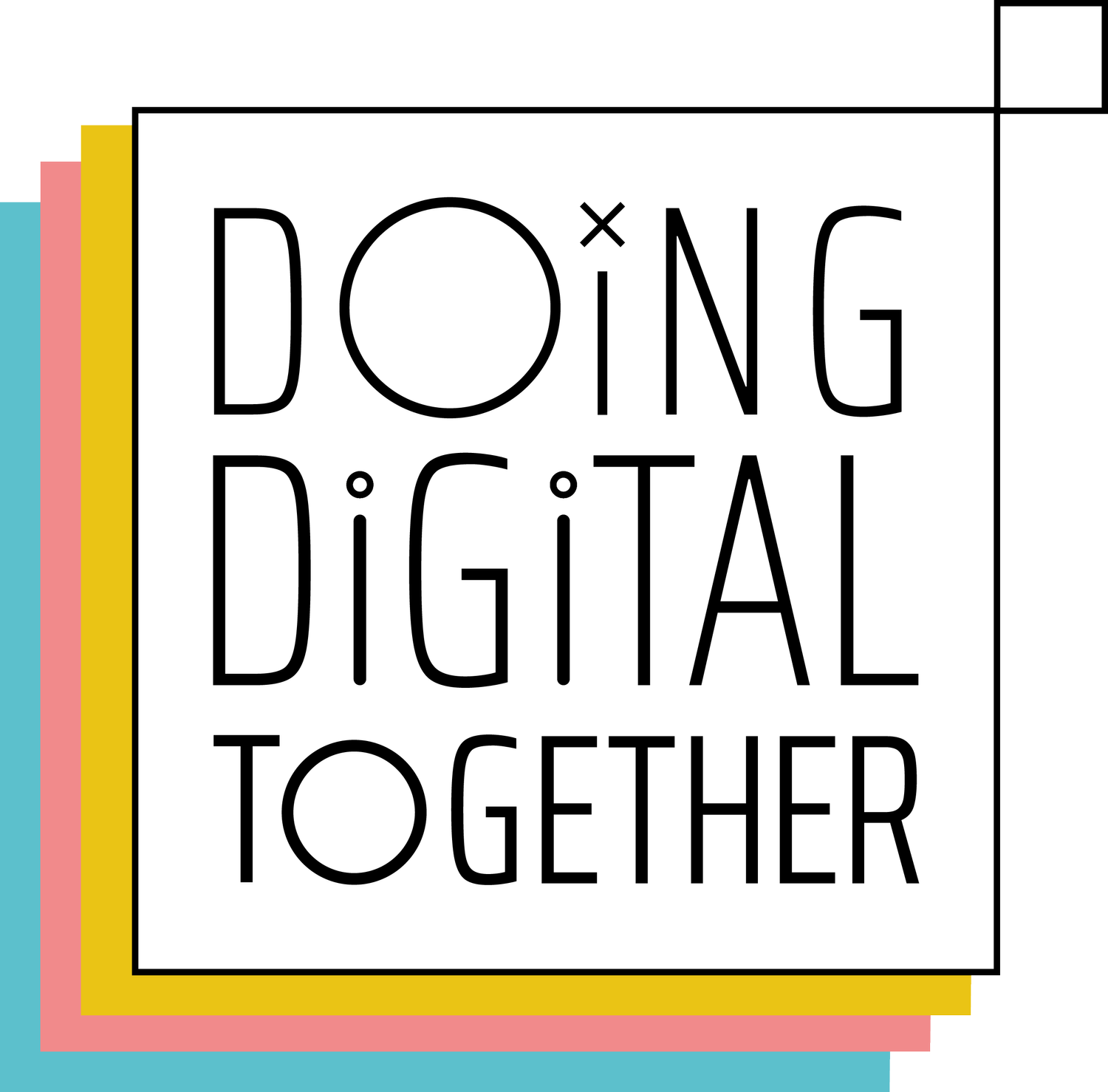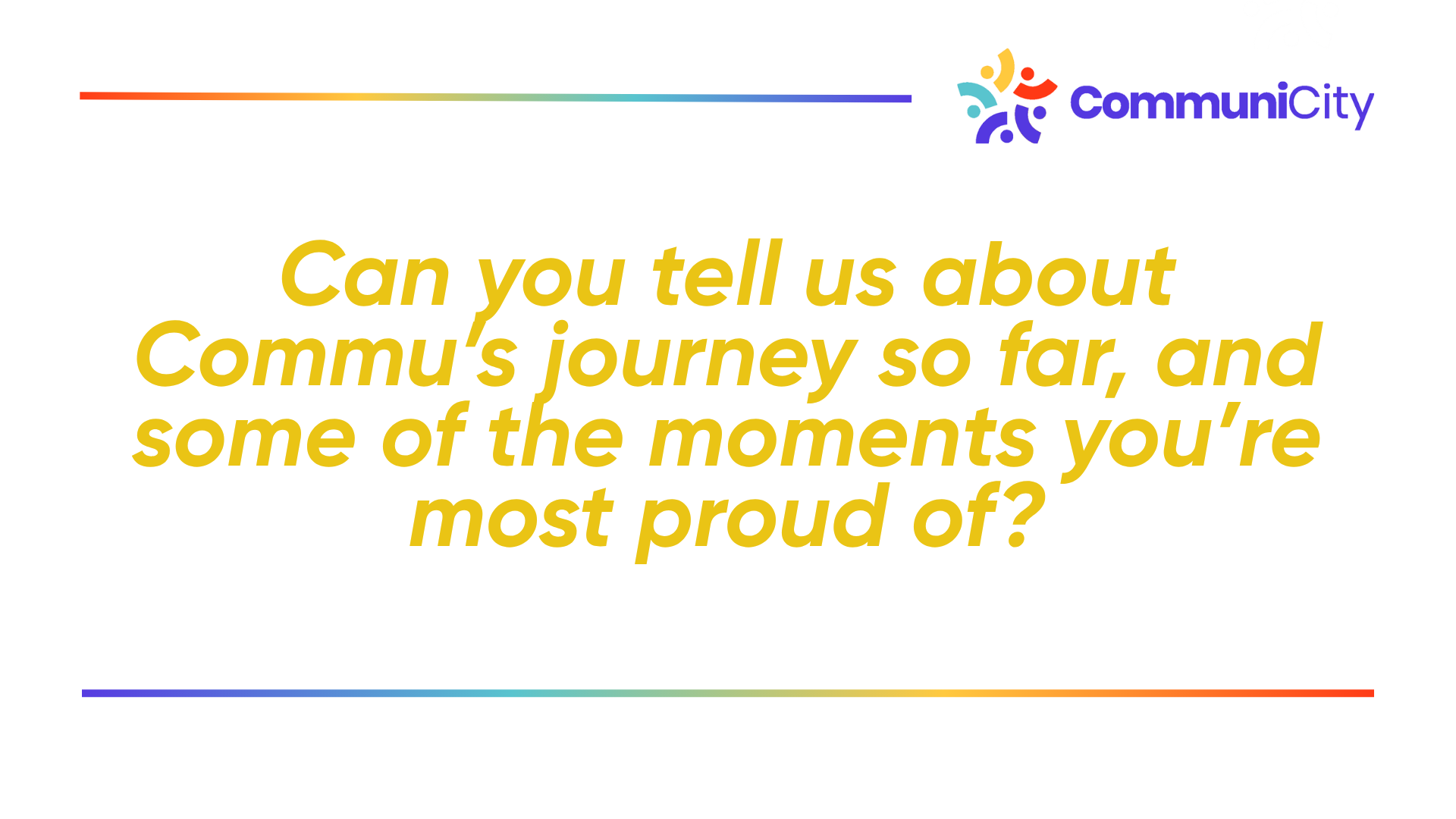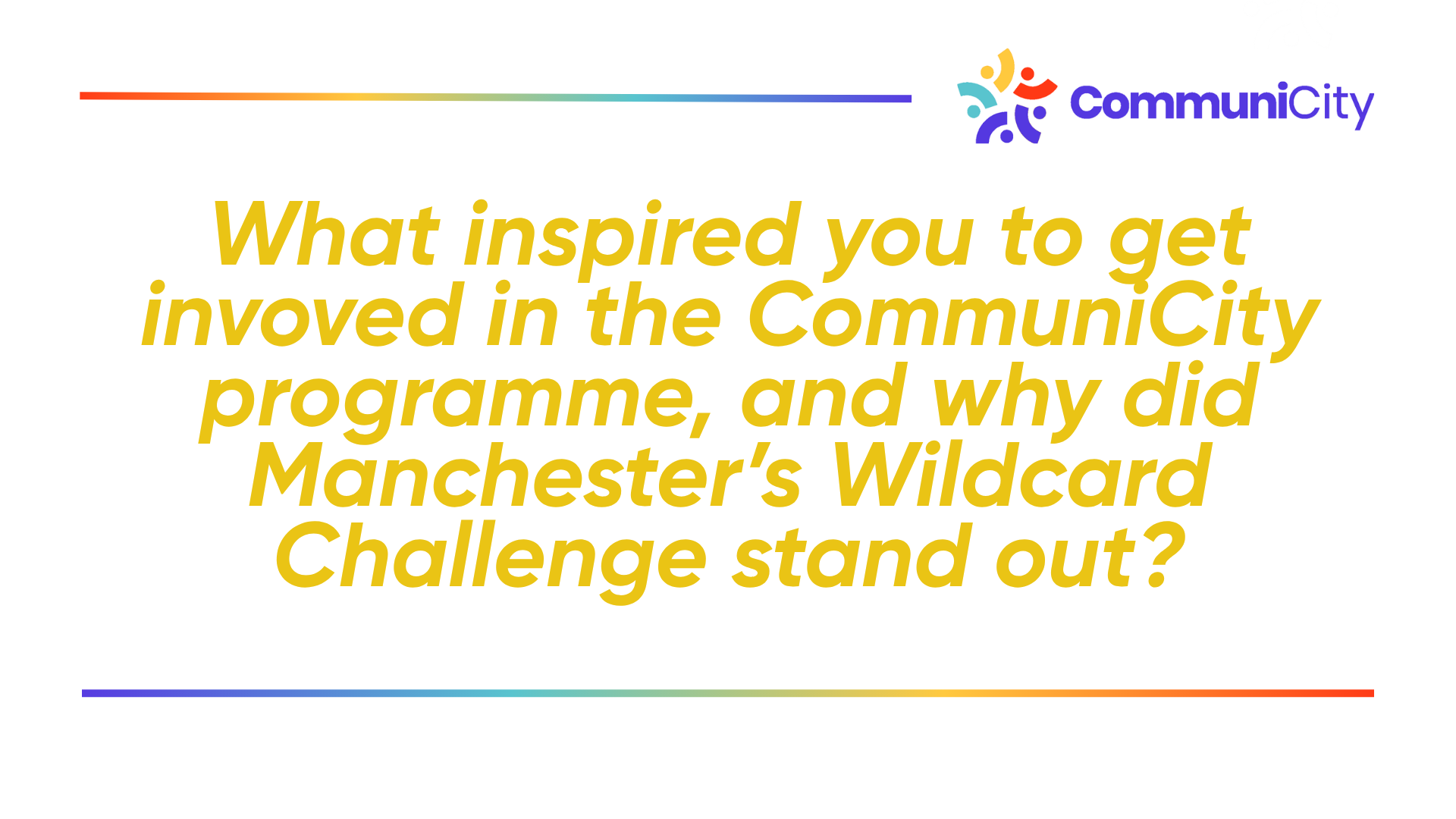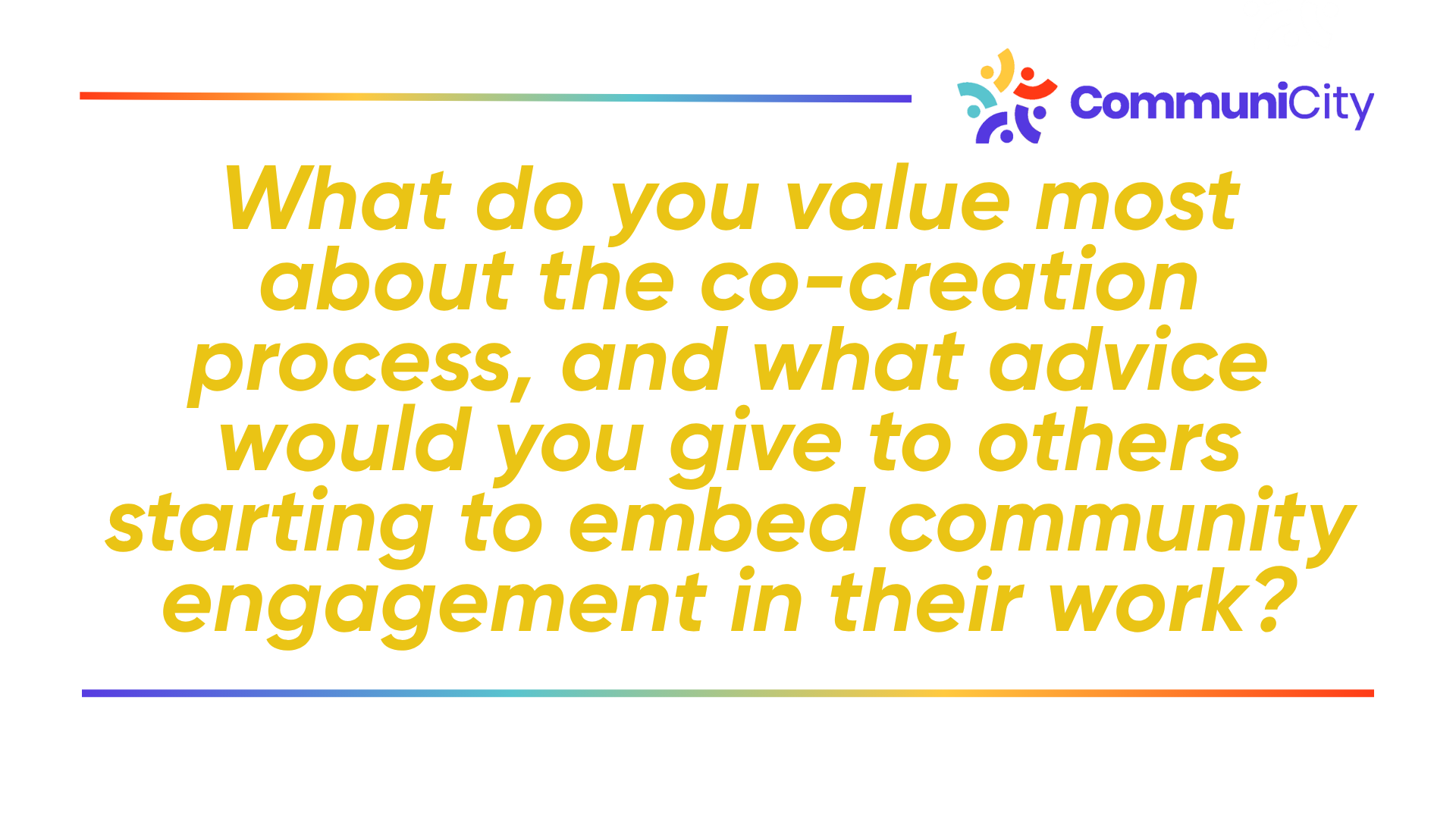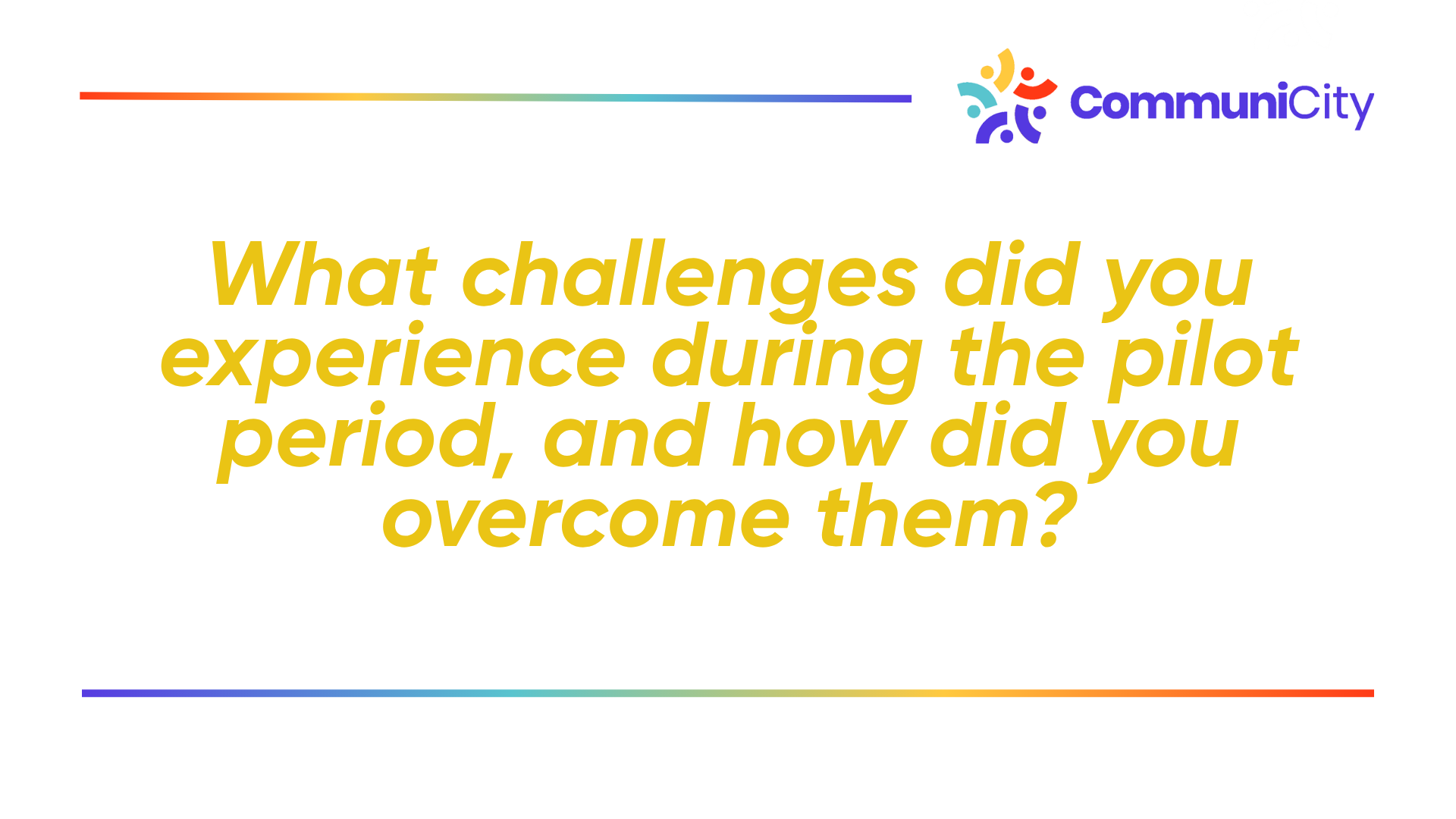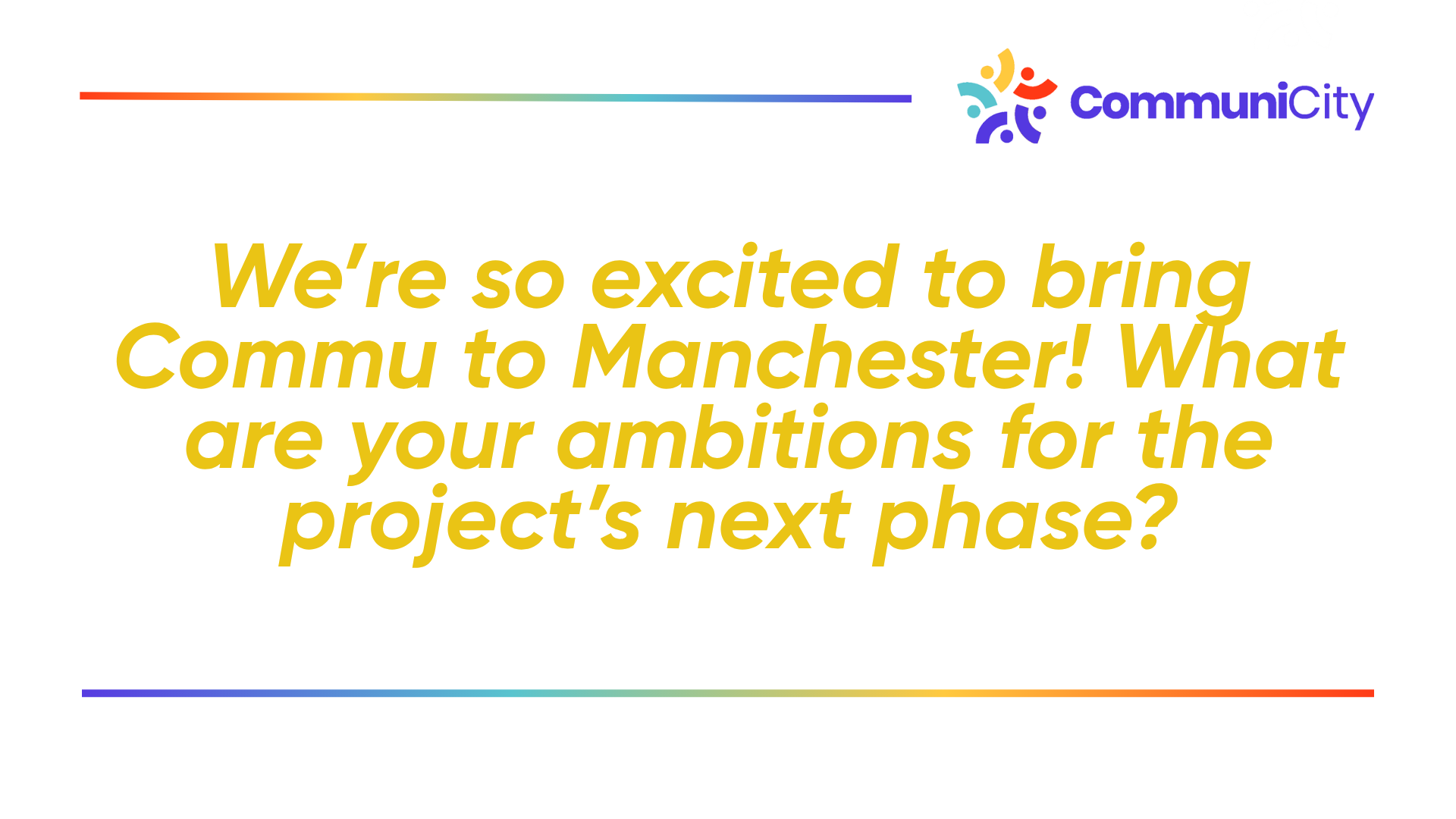Interviewing Karoliina Kauhanen
Karoliina Kauhanen is the Founder and Chief Marketing Officer of Commu, a free community app from Finland. Commu’s main goal is to bring people together to improve their neighborhoods through acts of kindness.
As part of the EU Horizon funded CommuniCity programme, we partnered with Commu to boost collaboration across the Our Manchester Food Partnership network, empowering organisations to more effectively manage volunteers and share resources.
Manchester’s Digital Strategy: While Commu may be new to Manchester, the platform has already made a big impact in Finland! Can you tell us more about Commu’s journey so far, and some of the moments that you’re most proud of?
Karoliina Kauhanen: We started Commu as three friends, with backgrounds in nursing, nonprofits and coding. In our lives, we’d all experienced how difficult it is to ask for help - and we wanted to make it easier. So we built Commu, where you can ask for help and do good with a few clicks of a button.
Since then, more than 100,000 people have joined. Commu has won multiple awards including recognition from United Nations in promoting civil activism and good deeds. So far, over 35,000 good deeds have been done on the platform! That is a WILD impact to think about - how many grocery bags have been donated to the needy, how many pets have found a place to stay, how many ride-shares have been offered, how many peer-to-peer moments have happened...
MDS: The CommuniCity initiative aims to support innovative, community-led solutions to real social challenges. What inspired you to get involved in the programme, and why did Manchester’s wildcard challenge stand out?
KK: We joined CommuniCity because we believe tech should be built with and for the community. We've seen first-hand how communities can be engaged when they’re given the right tools to use! Manchester’s wildcard challenge stood out because it focused on real-life impact and inclusivity - values that are at the heart of Commu.
MDS: Co-creation is a big part of CommunCity’s approach to technological innovation. What do you find most valuable about the co-creation process, and what advice would you give to organisations starting to embed community engagement in their work?
KK: The most valuable part of the pilot was definitely Sami’s week in Manchester! Meeting all the partners and people face-to-face, and hearing directly from social food providers, shaped our approach in ways we couldn’t have planned alone. Start small, listen actively, and involve the community from day one.
MDS: While Commu has earned plenty of positive feedback from food providers, no pilot runs perfectly! What challenges did you experience during the pilot period, and how did you overcome them?
KK: It's important to understand that we've built Commu from scratch - no code, no users, no cities involved. We know a thing or two about mistakes! One challenge was adapting to a new local context; habits and systems differ. We overcame this by being present on-site to introduce Commu, creating different versions of materials, listening to feedback and iterating quickly. Flexibility and open dialogue with the pilot team was key.
MDS: We’re thrilled that the pilot has been so well received, and even more excited to see how we can continue working together to support Manchester’s network of social food providers! What are your ambitions for the project’s next phase?
KK: We’re excited too! We’re looking forward to deepening our impact in Manchester by growing partnerships, onboarding non-profits, connecting people who want to help with those who need help, and making Commu even easier to use. Our goal is to scale the model to support more providers and communities and to make asking for help feel normal and guilt-free.
